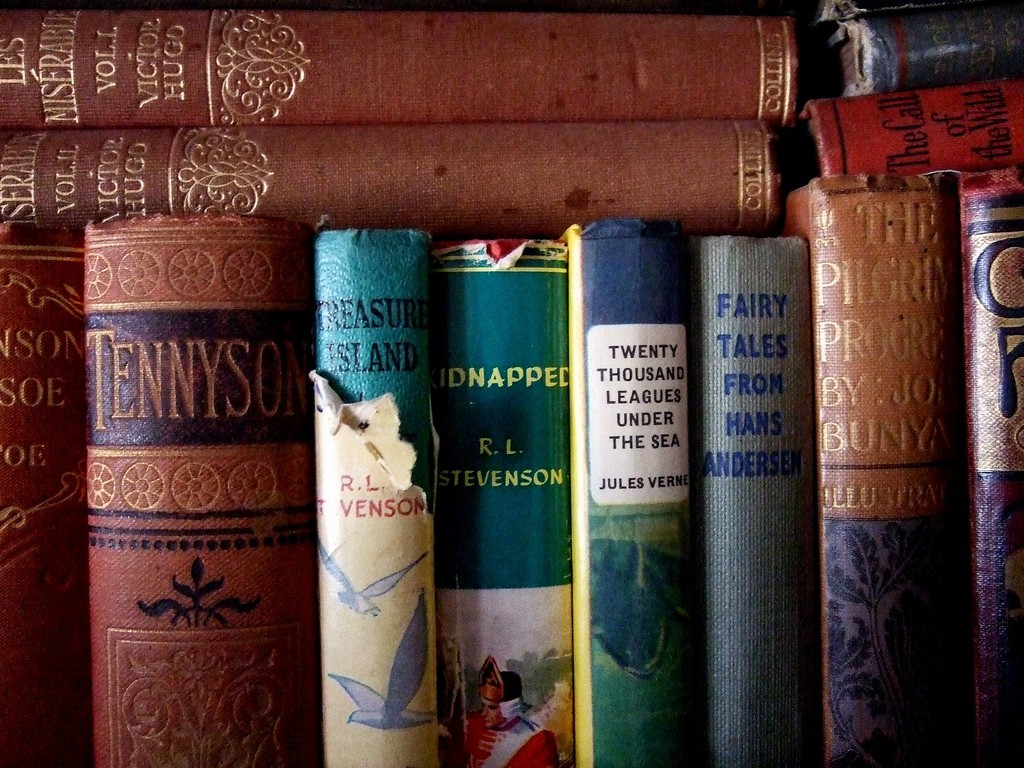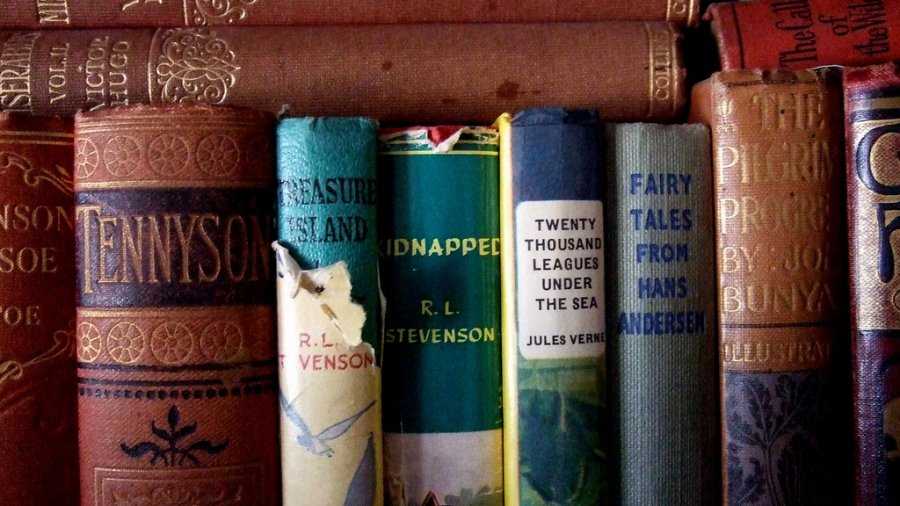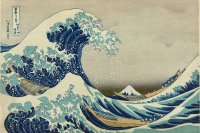Recently, Noel Gallagher, the frontman of the band Oasis, (I didn’t know who he was either) lashed out against fiction, saying, “I only read factual books. I can’t think of … I mean, novels are just a waste of f–king time.”
Though we’re all entitled to our opinions, I was perturbed to see such a complete and disrespectful dismissal of a pastime that has enriched the lives of countless humans for hundreds of years. I wondered how many others feel similarly.
Coincidentally, I’d recently run across an article in the NYT that described a fascinating study published in the journal Science earlier this month. The study’s findings suggest that reading literary fiction is far from a “waste of f–king time”.
I did a bit of digging and found several other studies with findings that likewise suggest cognitive benefits of reading great literature. This article will summarize those benefits and can also be seen as a triumphant “Ha!” in the face of Noel Gallagher and others who trivialize art-forms about which they know nothing. Okay, I’m sorry, I’m trying not to be too feisty. Without further ado:

1. Improves social perception and emotional intelligence.
This was the conclusion of the recent study that I mentioned above. In the study, participants’ social perception was tested after they were randomly assigned to read excerpts from either literary fiction, popular fiction, non-fiction, or nothing at all. One example of the type of test given was a “Reading the Mind in the Eyes” test in which subjects looked at photographs of actors’ eyes and decided what emotion was being expressed.
On average, people who read literary fiction scored better on the tests than those who read popular fiction, non-fiction, or didn’t read. This is the first study that suggests that reading literary fiction has immediate effects in terms of influencing how well we can understand our peers.
The overarching category being tested in this study was “theory of mind”, which refers to an individual’s ability to gain correct insight into the motivations and feelings of others. Other studies, notably those conducted by York University psychologist Raymond Mar in 2009 and 2010, targeting both adults and children, have produced the same conclusion.
2. Increases empathy.
Whether or not research had been conducted, many of us would probably assume this conclusion were true. After all, isn’t reading fiction an exercise in placing ourselves into the minds and lives of other people? Nevertheless, studies have been conducted, and the results are as one would have predicted.
Raymond Mar and Keith Oatley’s 2009 study (referenced above), in conjunction with their related 2006 study, seem to be excellent examples. In 2006, they examined participants’ lifetime exposure to both fiction and non-fiction as well as their performance on empathy/social-acumen tests.
They found that fiction exposure correlated positively with empathy, while non-fiction exposure had a negative correlation. They also found that one’s tendency to become absorbed in a story was positively correlated with empathy. Their 2009 study re-confirmed the result and showed that the link persisted even after factoring in the possibility that empathetic individuals might choose to read more fiction.
3. Makes one more comfortable with ambiguity.
Finally, an intriguing 2013 study published in Creativity Research Journal demonstrated that people who have just read a short story have less need for “cognitive closure” than people who’ve just read a non-fiction essay. 100 University of Toronto students read either one of eight short stories or one of eight essays.
Afterwards, each student completed a survey measuring their emotional need for certainty and stability. Those who read a short story had significantly lower scores than those who read an essay. They expressed greater comfort with uncertainty and chaos–attitudes that allow for higher level thinking and greater creativity.
Reading Fiction Makes You Sharper and Kinder
From this research alone, we can draw fascinating conclusions about how reading fiction affects our minds. For one, it gives us insight into human behavior, motivation, and perception. This allows us to better understand how societies operate, why people are living in particular ways, and how to maintain good relationships.
Furthermore and on a related note, it helps us to relate emotionally with other people, to recognize the difficult struggles of our fellow men and women. This makes us more sensitive and compassionate. Our relationships will be enhanced by genuine tenderness, and we’ll inevitably be kinder to strangers because we realize the depth beyond the unfamiliar face.
Finally, reading fiction allows to better deal with uncertainty and ambiguity. As the study suggested, this leads to more creativity and sophisticated thinking. F. Scott Fitzgerald once wrote, “The test of a first-rate intelligence is the ability to hold two opposed ideas in the mind at the same time, and still retain the ability to function.”
When you delve deeply into almost any subject, you find that the more you learn, the less clear-cut the answers become. This is because life is not clear-cut; it can be interpreted ten million ways and then some. Thus, learning to be comfortable with uncertainty is indispensable to becoming comfortable with being human.
In addition, remember that the reasons to read literature are certainly not limited to those which have been demonstrated scientifically. To read fiction is to exercise the imagination, to affirm the age-old art of storytelling, and to embrace the lives of others who are different from us.
In my estimation, these items are of an extraordinary importance that cannot be calculated. Reading fiction promotes the kind of openness, creativity, and sensitivity that are so often lacking in our cold, concrete civilizations.
So… let us read! And let us encourage others to do so. We might just change the world in the process.
P.S. Have you read any good fiction lately? Drop suggestions in the comments. I’m always looking for new stuff. Here’s one from me: Kafka on the Shore by Haruki Murakami. I picked this up a couple weeks ago and loved it. Murakami is quickly becoming one of my favorite authors. Cheers.
P.P.S. Enjoy this article? Check out the ways to get free updates from Refine The Mind.
Photo Credit: David Masters
About Jordan Bates
Jordan Bates is a Lover of God, healer, mentor of leaders, writer, and music maker. The best way to keep up with his work is to join nearly 7,000 people who read his Substack newsletter.






I love this post, and I think the front man of Oasis is famous for being a bit of a douche? That’s how my friends who know more about him put it anyway. I also find it fascinating how similar our interests seem to be, hip-hop, philosophy, writing.. although I used to live in Japan, not Korea.
Peace.
Ragnar, Great to hear that you loved the post, man. I also read that the Oasis guy is known for making outrageous and controversial statements just for publicity. “Douche” sounds like the appropriate word, haha. And WOW, that is crazy how much we have in common. Very cool that you’re also a writing and philosophy kind of guy. And that’s sweet that you lived in Japan. So close to where I am now! Asia is something else. Curious to know what kind of hip-hop you’re in to. For the longest time I was all about the classic stuff — De… Read more »
Haha. You guys took the word right out of my mouth. Noel Gallagher has been this way for at least the last two decades (and I suspect longer). 🙂 Don’t take anything he says seriously.
Good to know, venus. Haha, thanks. 🙂
I dabble a lot, but some of my favorites are Mos Def, Cunninlynguists, Aesop Rock, Styles of Beyond, Aceyalone, Swollen Members and Intuition, haha. Black on both sides was my soundtrack for walking around at dusk.
Korea has a lot cheaper living costs than Japan, Soju was so cheap in the stores when I went there I was lucky I didn’t get alcohol poisoning…
Ah yeah, we have a lot of common tastes. Love Cunninlynguists too. I’ve only ever heard Styles of Beyond on that one Fort Minor jam, ‘Remember the Name’, and I haven’t listened to Swollen Members or Intuition. I’ll have to check ’em out.
Yeah, I’ve been pleased with how cheap Korea is for the most part. The soju I’ve seen is about 20% alcohol or so. I dabbled and then have mostly steered clear. It definitely sneaks up and leaves you feeling awful the next day.
This is excellent – congratulations on so neatly tying up those articles! I agree with all you say. And Kafka on the Shore is one of my favourite books ever. If you haven’t already, (I suspect you might’ve) try reading The Book of Laughter and Forgetting by Milan Kundera, or The Unbearable Lightness of Being. If you ever feel like a really easy but worthwhile read, Looking for Alaska, by John Green. I’ll stop now.
Myf, Thank you! I’m glad you felt I tied them together well. Awesome to hear that you loved Kafka on the Shore as well. It was unlike anything I’ve ever read. I loved the magic realism in the midst of so many otherwise painstakingly “realistic” details. And loved his characters. I did wish the ending had shed light on a few unanswered questions, but all in all, it was a hell of an experience to read. Thank you so much for the recommendations. In fact I’ve read none of those books. Milan Kundera has been high on my list of… Read more »
Thanks for the recommendations on books! Always looking for new books to read, though my “to read” list is absurdly long as it is… 🙂
You’re not alone! I have a sneaking suspicion that my “to read” list will continue to grow rapidly enough that in all my life I will never see it completed. That’s not a bad problem to have, though. Better to have too many great books out there than too few!
A Song of Ice and Fire series…. Truly invigorating!
Ah, some friends have listed these as among their favorite books! Definitely planning to read them at some point. Thanks, Erik!
Adventurer’s wanted is good. Also, Lord of the Rings, John Flanagan, and Gerald Morris
Thank you so much! Writing an essay on why a child should acquire a love of reading and this helps greatly 🙂 Thank you!
[…] also recommend reading more. There are quite a few benefits to reading, specifically, reading fiction, that will not only make you more interesting, but easier to talk to in general. Book […]
[…] reading fiction improves brain connectivity and allows the reader to visualize a situation from multiple perspectives […]
[…] reading fiction improves brain connectivity and allows the reader to visualize a situation from multiple perspectives […]
[…] Tip: If one of your mistakes has you stumped, try reading a book. Multiple studies have shown that reading fiction improves brain connectivity and allows the reader to visualize a situation from multiple perspectives. […]
I just read a quote in our newspaper today:
Why fiction is so much more interesting than non-fiction… it has no limitations.
It was not until 10 days ago, I completely agreed with Noel’s standpoint. But when I decided to try Terry Hayes’s book “I am Pilgrim”, everything ruined.
Turned out that reading fiction is VERY HARD.
Even harder than those Physics/Math texts.
Now I realized that I need both; fictions and Physics/Math texts.
No matter how genius a person is, knowing only Physics/Math texts makes him dull one day.
This article definitely widens my horizon on fiction works, and it greatly helps!
Thanks for such post!